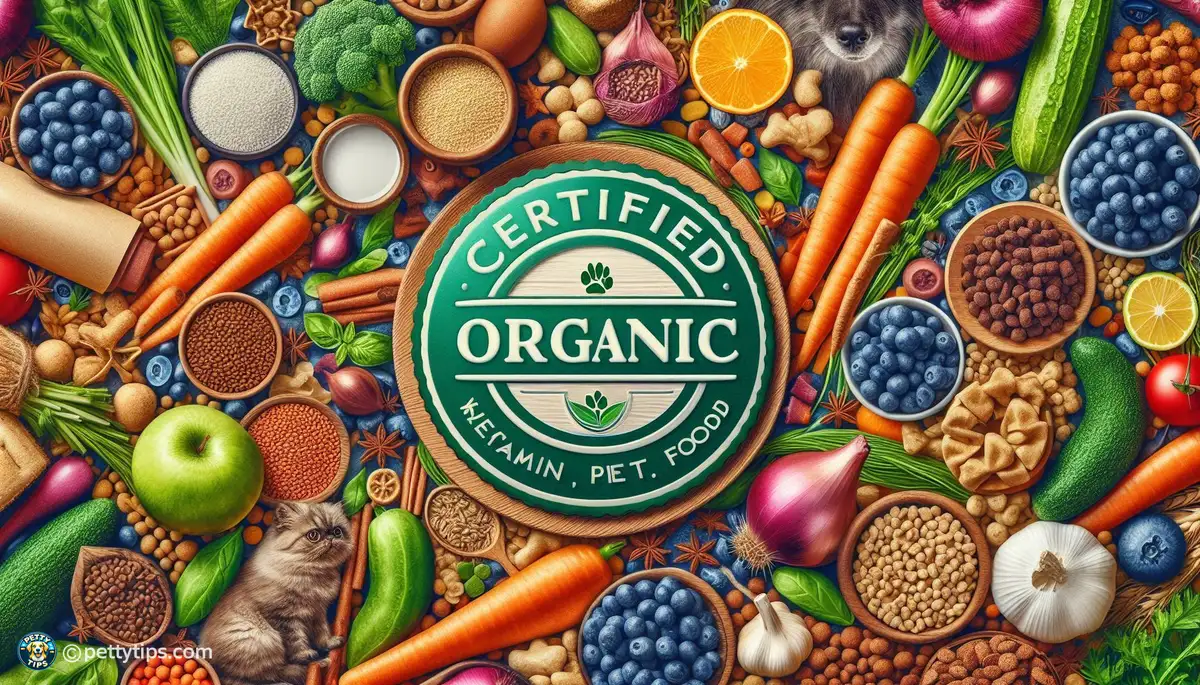
Creating Homemade Diets for Pets with Dietary Restrictions
Giovanni Farina - Sep 12, 2024 - 10 min read


Certified organic labels on pet food signify a level of quality and integrity that goes beyond mere marketing jargon. When you see this label, it means the product has met stringent standards set by certifying bodies. These standards encompass everything from ingredient sourcing to processing methods, ensuring that your pet's food is held to the highest standards of purity and sustainability.
Obtaining a certified organic label isn't a walk in the park for pet food manufacturers. It involves meticulous documentation, inspections, and adherence to strict guidelines throughout the entire production chain. From the farms where ingredients are grown to the facilities where food is processed, every step is scrutinized to ensure compliance with organic standards. This rigorous process offers pet owners peace of mind, knowing that what they're feeding their furry friends is truly wholesome.
Certified organic pet food is often nutritionally superior to conventional options. The use of organic ingredients means fewer synthetic pesticides, herbicides, and fertilizers in your pet's diet. Plus, organic farming practices promote soil health and biodiversity, which can lead to more nutrient-rich ingredients.
The ingredients used in certified organic pet food are carefully selected to provide optimal nutrition without compromising your pet's health. You won't find artificial colors, flavors, or preservatives lurking in these products. Instead, you'll see wholesome ingredients like organic meats, fruits, and vegetables that support your pet's overall well-being.
Choosing certified organic pet food isn't just beneficial for your furry friend—it's also good for the planet. Organic farming practices prioritize sustainability by minimizing the use of synthetic chemicals and promoting eco-friendly methods like crop rotation and composting. By supporting organic agriculture, you're helping to protect precious natural resources for future generations.
The production of conventional pet food can have a significant environmental impact, from the energy used in manufacturing to the transportation of ingredients. In contrast, certified organic pet food tends to have a lower carbon footprint due to its emphasis on sustainable practices and locally sourced ingredients. By opting for organic, you're taking a step towards reducing your pet's ecological pawprint.
Certified organic pet food offers greater transparency and traceability than conventional options. From farm to bowl, each ingredient can be traced back to its source, providing reassurance to pet owners who want to know exactly what they're feeding their companions. This level of accountability helps build trust between consumers and manufacturers, fostering a healthier pet food industry overall.
One of the key benefits of certified organic pet food is its reduced exposure to harmful contaminants and toxins. Organic farming practices avoid the use of synthetic pesticides and genetically modified organisms (GMOs), which can pose health risks to pets and humans alike. By choosing organic, you're minimizing your pet's exposure to potentially harmful substances, promoting their long-term health and well-being.
Certified organic pet food is often produced with a strong emphasis on animal welfare. Organic standards require humane treatment of livestock, including access to outdoor areas, natural diets, and living conditions that allow for natural behaviors. By supporting organic agriculture, you're contributing to a more compassionate approach to animal husbandry, ensuring that your pet's food is produced with their welfare in mind.
Many conventional pet foods contain by-products and fillers derived from low-quality sources. In contrast, certified organic pet food prioritizes whole, nutritious ingredients that are free from questionable additives. By choosing organic, you're giving your pet the best possible diet—one that's rich in essential nutrients and devoid of unnecessary fillers.
As a pet owner, it's essential to educate yourself about what goes into your pet's food. Take the time to read labels carefully, paying attention to ingredients and certifications. Look for recognizable, whole-food ingredients and seek out products with certified organic labels whenever possible. Your pet's health is worth the extra effort.
When it comes to your pet's diet, don't hesitate to seek advice from veterinary professionals. They can offer valuable insights and recommendations tailored to your pet's specific needs. Whether you're considering switching to organic food or simply want guidance on nutrition, your veterinarian is an invaluable resource in helping you make informed decisions for your furry companion.
In conclusion, certified organic labels play a crucial role in ensuring the quality, safety, and sustainability of pet food. By choosing organic options, pet owners can provide their furry friends with nutritionally superior diets while also supporting environmentally friendly practices and animal welfare initiatives. With greater transparency, traceability, and accountability, certified organic pet food offers peace of mind to conscientious consumers who want the best for their beloved companions. So, the next time you're shopping for pet food, remember the importance of looking for that certified organic label—it's a small step that can make a big difference in your pet's health and happiness.